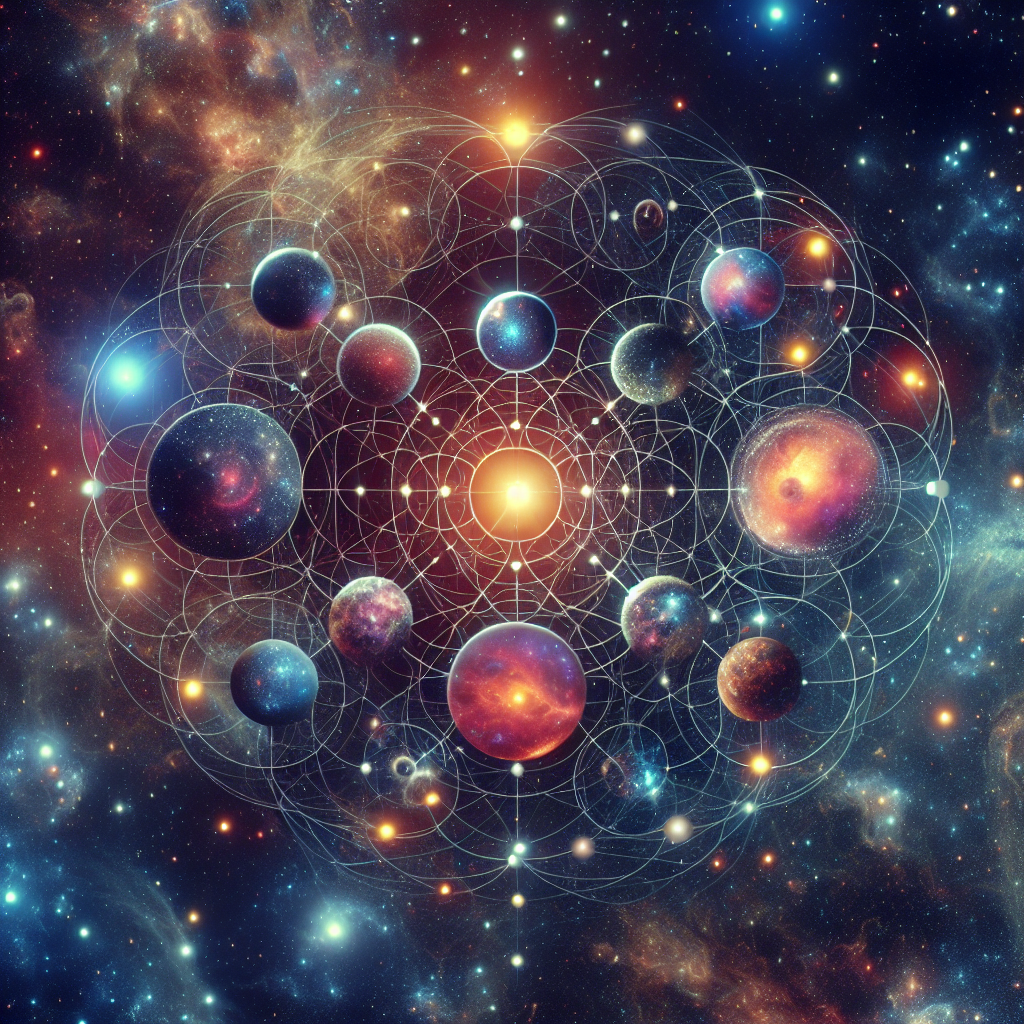Introduction to the Multiverse Theory
The concept of a multiverse suggests that our universe might be just one of many universes, potentially infinite in number. This idea, which extends beyond the traditional cosmological views, challenges our understanding of space, time, and the fundamental structure of reality. But what supports the possibility of a multiverse? Let’s explore the scientific theories and philosophical debates surrounding this intriguing hypothesis.
The Scientific Foundations of the Multiverse
The idea of multiple universes is supported by various theoretical frameworks in physics. One prominent theory is the inflationary multiverse, proposed by cosmologist Alan Guth. According to this theory, the rapid expansion of space after the Big Bang could lead to the creation of numerous bubble universes, each with its own physical laws and constants.
Another key theory comes from quantum mechanics, specifically the Many-Worlds Interpretation (MWI) suggested by Hugh Everett. MWI posits that all possible quantum events can occur simultaneously in branching, parallel universes. This interpretation avoids the wave function collapse in quantum physics, offering a coherent explanation for quantum probabilities.
Implications for Fundamental Physics and Cosmology
Accepting the possibility of a multiverse has profound implications for understanding our universe. If multiple universes exist, each with potentially different laws of physics, this could answer fundamental questions about the fine-tuning of constants in our universe, which seem precisely set to allow for the existence of life.
Moreover, the multiverse hypothesis could provide insights into the nature of dark matter and dark energy, mysterious components that together comprise about 95% of the total mass-energy content of the universe. Exploring how these elements operate in other universes might offer clues about their roles in our own.
Philosophical and Theological Considerations
The possibility of a multiverse also raises significant philosophical and theological questions. It challenges the traditional notion of a singular creation and potentially undermines arguments for a fine-tuned universe as evidence of a divine designer. Philosophers debate whether the existence of multiple universes alters concepts of human significance and ethics.
From a theological perspective, if multiple universes exist, this could necessitate a reevaluation of doctrines concerning the nature of divinity and creation, adapting these to a potentially broader, more diverse cosmos.
Challenges in Proving the Multiverse Theory
Despite its intriguing prospects, the multiverse theory faces significant scientific challenges, primarily regarding evidence. Currently, there is no direct way to observe other universes, which places the multiverse theory outside the standard criteria of scientific testability and falsifiability.
However, some physicists suggest that indirect evidence could be found through cosmic microwave background radiation or the detection of certain types of cosmic rays, which might hint at interactions with other universes.
Future Directions in Multiverse Research
As technology and theoretical physics progress, new methods might emerge to test the possibility of a multiverse. These include advanced simulations and mathematical models that could predict observational signatures of multiverse theories.
In the meantime, the multiverse remains a vibrant area of theoretical research, continuing to inspire both scientific and philosophical inquiry into the nature of reality.
In conclusion, while the multiverse concept challenges our current understanding and remains largely speculative, it opens new realms of possibility in both science and philosophy. As we expand our cosmic horizons, the idea of multiple universes could eventually move from the realm of speculation to an observable reality, reshaping our conception of the universe.


